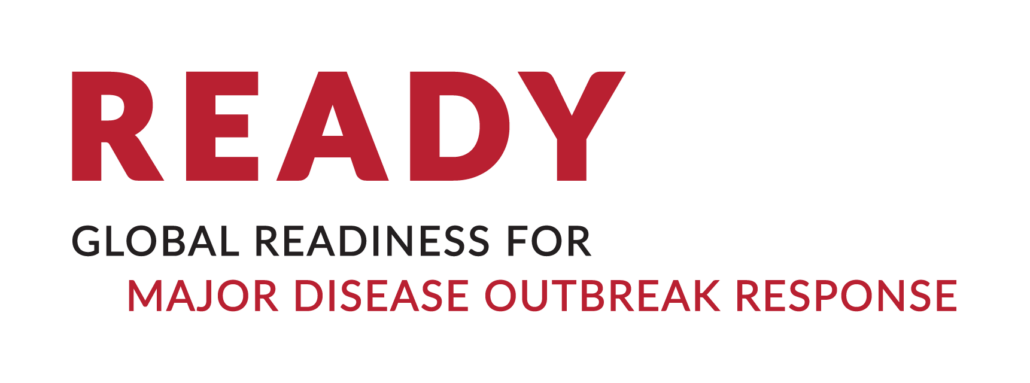RCCE: Percepções, desinformação e preocupações em países africanos na época da COVID-19
Oradores: Kathryn Bertram, READY / Johns Hopkins Center for Communication Programs; Sharath Srinivasan, Africa's Voices Foundation; Sharon Reader, Escritório Regional da FICV para a África || Tema: Entendendo as preocupações, percepções e barreiras de desinformação à prática de comportamentos preventivos em países da África Subsaariana e o que está sendo feito para lidar com elas.
Este webinar focado em Comunicação de Risco e Engajamento Comunitário (RCCE) ocorreu na quarta-feira, 29 de abril de 2020. Para recursos RCCE mais atualizados, visite Kit de ferramentas RCCE da READY ou o Módulo RCCE de Microtreinamentos COVID-19.
Resumo do Webinar
Relatórios recentes e modelagem provisória de agências da ONU e da OMS estimam que o número de casos e vidas perdidas na África devido à COVID-19 pode aumentar dentro de 3 a 6 meses. As populações urbanas são uma preocupação particular, pois a maioria vive em bairros superlotados, enquanto o acesso não confiável a instalações para lavar as mãos e rumores e desinformação generalizados são desafios em ambientes rurais e urbanos. Neste webinar, Sharon Reader, Consultora Sênior para Engajamento e Responsabilidade da Comunidade, Escritório Regional da IFRC na África, e Sharath Srinivasan, cofundador e Consultor Sênior, Africa's Voices Foundation, discutiram o trabalho que estão fazendo para entender as preocupações, percepções e barreiras de desinformação para praticar comportamentos preventivos em países da África Subsaariana, e o que está sendo feito para lidar com elas.
Moderador: Kathryn Bertram, Consultora de Mudança de Comportamento Social, READY; Johns Hopkins Center for Communication Programs
Palestrantes especialistas:
- Sharath Srinivasan, cofundador e consultor sênior da Africa's Voices Foundation
- Sharon Reader, Engajamento e Responsabilidade Comunitária, Escritório Regional da FICV África


Este site é possível graças ao apoio do povo americano através do Agência dos Estados Unidos para o Desenvolvimento Internacional (USAID) no âmbito da iniciativa READY. READY (não é um acrônimo) é apoiado pela USAID Gabinete para a Democracia, Conflitos e Assistência Humanitária, Escritório de Assistência a Desastres Estrangeiros dos EUA (OFDA) e é liderado por Salve as crianças em parceria com o Centro Johns Hopkins de Saúde Humanitária, o Centro Johns Hopkins para Programas de Comunicação, Reino Unido-Med, Aliança EcoSaúde, e Misericórdia Malásia. O conteúdo deste website é da exclusiva responsabilidade da Save the Children. As informações fornecidas neste site não refletem necessariamente as opiniões da USAID, de qualquer ou de todos os parceiros do consórcio ou do Governo dos Estados Unidos, e não constituem informações oficiais do Governo dos EUA.

